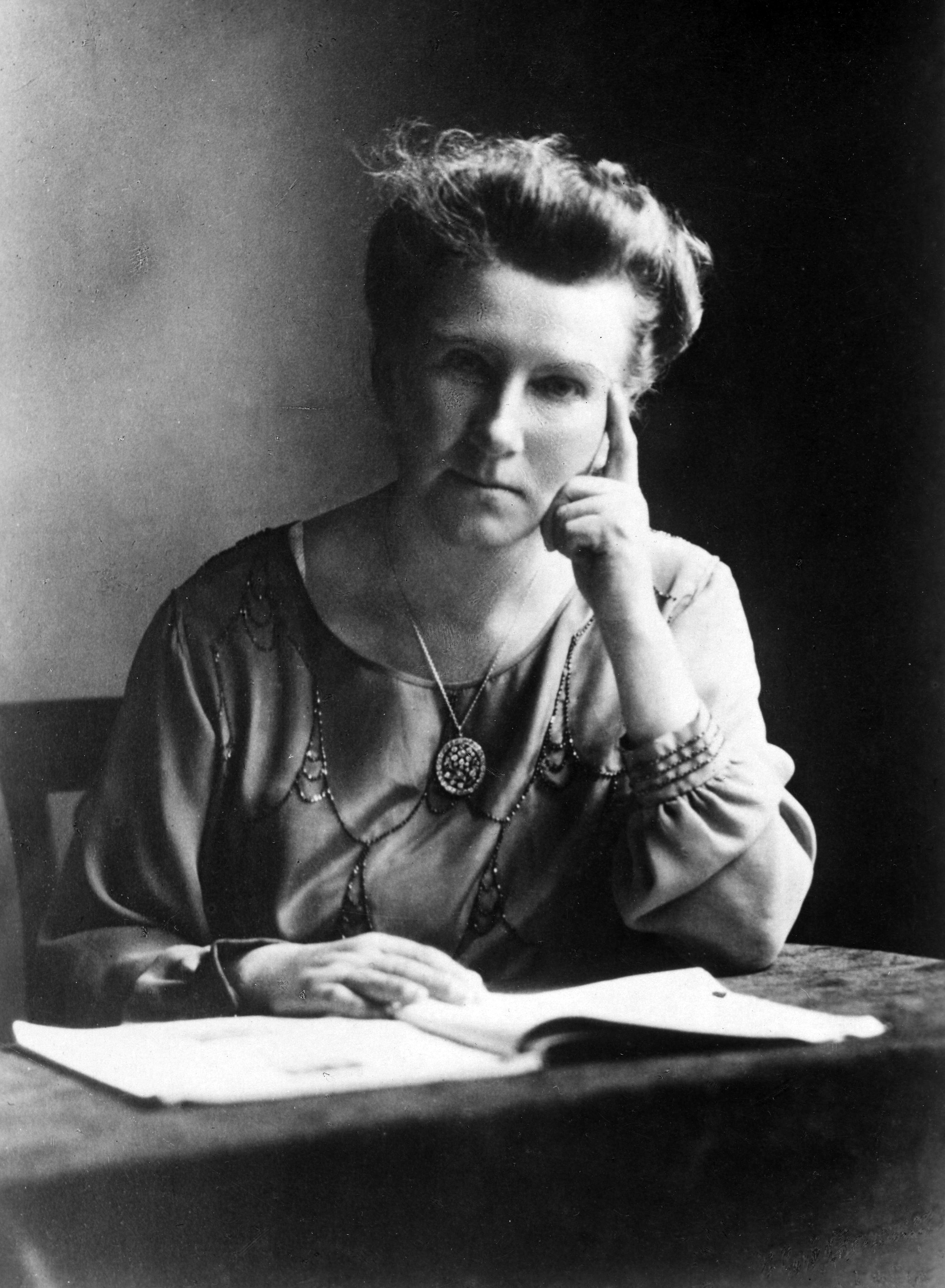The unfinished job of Swiss feminists

To mark the centenary of the world’s oldest periodical dedicated to feminism, the Mouvement féministe, two Swiss writers have produced a book reflecting on the advances of feminism and the problems it is experiencing.
swissinfo.ch spoke to one of the authors, Silvia Ricci Lempen, who explains that although feminism, like other collective movements, has left the streets and entered the realm of theory, this is a necessary tool on the path to full equality.
Geneva-born Emilie Gourd founded the review in 1912 to campaign for women’s rights. The periodical still exists, now published online by the Emilie Gourd foundation under the name l’emiliE.
The foundation commissioned Martine Chaponnière and Lempen to write Tu vois le genre? Débats féministes contemporains (Do you see the genre? Contemporary Feminist Issues).
swissinfo.ch : There is a lack of interest in feminism today, which is down, you say, to a belief that equality between men and women is on track. Is it?
Silvia Ricci Lempen: Yes and no. Yes, because much work has been done in terms of legislation. Many NGOs, national or international organisations (such as the United Nations for example) are taking gender equality very seriously. In Switzerland itself, you have many equality offices at the cantonal level or in universities. Their work is often linked to research on family or discrimination issues. It’s a similar picture to France.
No, it’s not on track because although the principle of equality seems to have been acknowledged in Western societies, its application in reality is a different story. Why? Because the majority of people continue to think that there are natural differences between men and women, and we must take account of them. On top of this this comes the idea of masculine virility which is deeply ingrained into the collective subconscious. However, I’m not sure that forcing attitudes to change, no matter what, is a desirable idea.
swissinfo.ch : Which is a bit of a paradox, isn’t it?
S.R.L.: Not at all. I think deliberately taking action to quickly force a change in a society’s mentality just leads to revolution – such as in China or under Pol Pot. We should be aiming more for society to change its attitudes over the long term.
swissinfo.ch : When you say society, who do you mean?
S.R.L.: There are many cultural differences – so it was difficult for us to study each country in terms of equality. We therefore concentrated on feminism as it is perceived in Western countries.
swissinfo.ch : That feminist movement was vocal around the beginning of the 1970s, with public demonstrations that really attracted attention. Hasn’t that progress you were talking about contributed to feminists letting their cause go off the boil?
S.R.L.: Yes, that’s right. To simplify it, I’d say that feminism left the streets and entered the realm of theory. And that’s happened to other causes too – perhaps the union movement is another example. I would say collective movements everywhere are losing steam. With the rise of individualism, everyone seems to be thinking about themselves and worrying about their own small kingdoms.
Seen in this light, the theory becomes a necessary tool, as necessary as openly criticising obstacles to equality. Thinking and reflecting on feminism and equality lets you go to the nub of the problem – that’s what centres like the LIEGE centre at Lausanne University do. Objective scientific research can shed light on issues connected with feminism for the person on the street.
swissinfo.ch : How does Switzerland compare with other European countries when it comes to equality between the sexes?
S.R.L.: When it comes to equal numbers of male and female politicians, Switzerland outdoes France and Italy, which is extraordinary when you think that Swiss women only won the right to vote in 1971. Around 30 per cent of Swiss parliamentarians are women, again higher than France and Italy. There is an explanation for that of course – Switzerland has long been a quota country, in contrast to France, for example, with its centralised system. With time the notion of gender has become as important as language, region, religion – all of which are important components of Swiss identity.
Now when it comes to equal pay, Switzerland has a gap of 18 per cent between men and women, all other things, such as qualifications, being equal. This is roughly what we see in other European countries. That is, if we disregard the Scandinavian countries which have adopted gender quotas for boardrooms. In those countries, executive boards have many more women than in Switzerland or the rest of Europe.
swissinfo.ch : You also looked at culture, and you even looked at Desperate Housewives, the US television series. In this popular series you say the characters symbolise the contradictions and paradoxes of the feminine condition. What do you mean?
S.R.L.: These are heroines who are “restricted” to the traditional role of the housewife. But at the same time they are non-conformist, rebellious mothers and wives. We are witnessing the ambivalent attitude to post feminism which is now prevalent. On the one hand, you have a very retrograde idea [the housewife] and on the other hand they are doing things only possible in a liberal, evolved society. Of course, Desperate Housewives is just a made-up story. Fiction is not a science. It has to be said though that this series does show up the paradoxes and contradictions facing women at the dawn of the 21st century.
Born in Geneva, Gourd was one of Swiss feminism’s most prominent figures in the 20th century. Gourd didn’t confine herself to one issue. She fought for disability benefit, maternity benefit, education for girls, equal pay and female access to all areas of work.
She was the president of the Swiss society for female suffrage from 1914 to 1928, during which period she threw her energy into securing votes for women.
Gourd was a journalist and was known as a powerful public speaker. In 1912 she founded le Mouvement féministe, a newspaper and propaganda tool for the female vote. The periodical was renamed Femmes suisses (Swiss women) then changed again to l’emiliE, now online.
Created in 1984 by Jacqueline Berenstein-Wavre, a Geneva politician and feminist campaigner, with the aim of developing the debate on feminism in French-speaking Switzerland. The foundation supported Femmes Suisses until 2001, and subsequently l’emiliE.
The foundation also contributes to various projects the production of films, plays and books on feminist issues.
Tu vois le genre? Débats féministes contemporains. By Silvia Ricci Lempen and Martine Chaponnière. Published by Editions d’En Bas (Lausanne).
(Translated from French by Rachel Marusak Hermann)

In compliance with the JTI standards
More: SWI swissinfo.ch certified by the Journalism Trust Initiative



You can find an overview of ongoing debates with our journalists here. Please join us!
If you want to start a conversation about a topic raised in this article or want to report factual errors, email us at english@swissinfo.ch.